 Congratulations to Dr. Joel Thibeault, who successfully defended his doctoral dissertation, Regard socioconstructiviste sur le développement de la compétence lexicomorphogrammique qui permet l’accord du verbe en nombre chez des élèves de la fin de l’ordre élémentaire dans le Sud-Ouest ontarienon, on June 27, 2017, at the University of Ottawa. Joel’s chair was Dr. Alain-François Bisson (Faculty of Law – Section Civil Law). Thesis supervisors were Dr. Carole Fleuret and Dr. Pascale Lefrançois (Université de Montréal). The External Examiner was Dr. Marie-Andrée Lord (Université Laval, by videoconference) and the
Congratulations to Dr. Joel Thibeault, who successfully defended his doctoral dissertation, Regard socioconstructiviste sur le développement de la compétence lexicomorphogrammique qui permet l’accord du verbe en nombre chez des élèves de la fin de l’ordre élémentaire dans le Sud-Ouest ontarienon, on June 27, 2017, at the University of Ottawa. Joel’s chair was Dr. Alain-François Bisson (Faculty of Law – Section Civil Law). Thesis supervisors were Dr. Carole Fleuret and Dr. Pascale Lefrançois (Université de Montréal). The External Examiner was Dr. Marie-Andrée Lord (Université Laval, by videoconference) and the
Examiners were Dr. Francis Bangou, Dr. Alain Desrochers, Dr. Michel Laurier.
Category: Successful Defence
Successful Defence
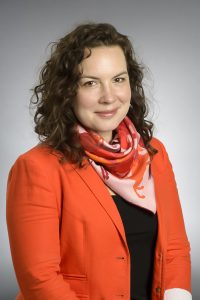
Congratulations to Dr. Sara Schroeter who successfully defended her dissertation, “Difference at Play: An Ethnography of Discourse and Drama in Multiracial Classrooms in a Francophone Minority Language Schools,” April 3rd at the University of British Columbia. Dr. Annette Henry and Dr. Lisa Loutzenheiser served as Sara’s doctoral supervisors, and her external examiner was Dr. Nombuso Dlamini.
Successful Defence
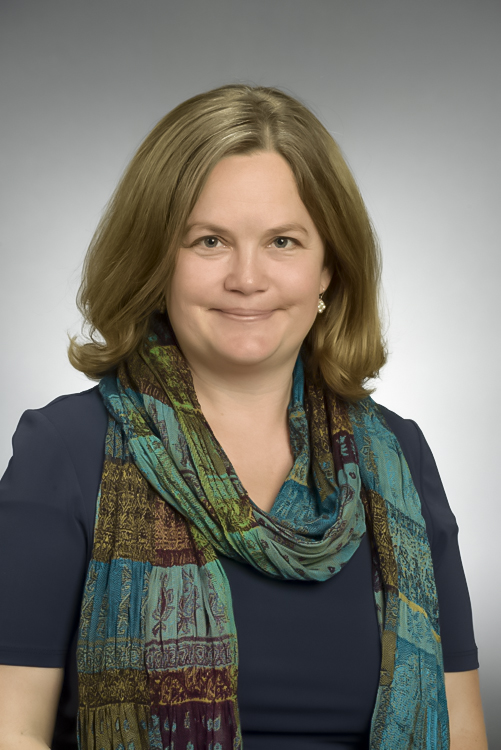 Congratulations to Dr. Heather Phipps on successfully defending her PhD at McGill University in Montreal on Wednesday, November 23 under the supervision of Dr. Teresa Strong-Wilson and Dr. Claudia Mitchell. Committee members included Dr. Anne Burke (Memorial University), Dr. Mary Maguire (McGill), and Dr. Mela Sarkar (McGill). The external examiner was Dr. Rahat Naqvi (University of Calgary).
Congratulations to Dr. Heather Phipps on successfully defending her PhD at McGill University in Montreal on Wednesday, November 23 under the supervision of Dr. Teresa Strong-Wilson and Dr. Claudia Mitchell. Committee members included Dr. Anne Burke (Memorial University), Dr. Mary Maguire (McGill), and Dr. Mela Sarkar (McGill). The external examiner was Dr. Rahat Naqvi (University of Calgary).
Phipp’s dissertation, Children Speaking with Children: Visualizing Engagement Through Contemporary Canadian Picture Books in French Classrooms, is an ethnographic study situated in a public primary school in urban Montreal. It documents young children’s responses to Canadian children’s literature in Grades 1 & 2 French classrooms. Her study highlights the ways in which children engage and respond to both the words and images in diverse Canadian literature, and how they reflect on their own lived experiences in relation to the picture books. Her future research interests include inquiry related to issues of belonging, identity, and community for children and teachers in the context of minority language education in francophone and French immersion schools in the Saskatchewan context and in diverse multilingual contexts across Canada.
Successful Defence
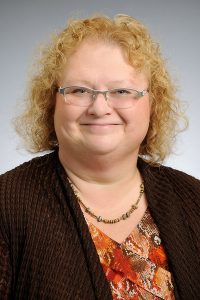 Congratulations to Dr. Gale Russell, Lecturer in Mathematics Education, who successfully defended her dissertation, “Valued Kinds of Knowledge and Ways of Knowing in Mathematics and the Teaching and Learning of Mathematics: A Worldview Analysis” on June 23 at the University of Saskatchewan.
Congratulations to Dr. Gale Russell, Lecturer in Mathematics Education, who successfully defended her dissertation, “Valued Kinds of Knowledge and Ways of Knowing in Mathematics and the Teaching and Learning of Mathematics: A Worldview Analysis” on June 23 at the University of Saskatchewan.
Her external examiner, Dr. Lisa Lunney Borden of St. Francis Xavier University, noted Dr. Russell’s exceptional skill as a researcher and the contributions that her dissertation will make to the national conversation relating to transforming the experiences in mathematics education for Indigenous students.
Dean Jennifer Tupper writes, “This is a tremendous accomplishment and one to be celebrated!”
Successful Defence
 Congratulations to Dr. Jenn de Lugt, Lecturer in Inclusive Education and Core Studies, who successfully defended her doctoral dissertation May 13 at Queen’s University. Jenn’s dissertation explored how appropriate reading intervention strategies may be used to ameliorate emotional and behavioural disorders in children. Her doctoral studies were funded in part by SSHRC Fellowships.
Congratulations to Dr. Jenn de Lugt, Lecturer in Inclusive Education and Core Studies, who successfully defended her doctoral dissertation May 13 at Queen’s University. Jenn’s dissertation explored how appropriate reading intervention strategies may be used to ameliorate emotional and behavioural disorders in children. Her doctoral studies were funded in part by SSHRC Fellowships.
Successful Defence

Congratulations to Dr. Christine Massing, Assistant Professor of Early Childhood Education, who successfully defended her doctoral dissertation on October 27 at the University of Alberta. Her dissertation explores the experiences of immigrant and refugee women studying in an early childhood education program. Her doctoral studies were funded in part by a Joseph-Armand Bombardier Canada Graduate Scholarship from Social Sciences and Humanities Research Council of Canada (SSHRC) and an Izaak Walton Killam Memorial Scholarship from Killam Trusts.
Congratulations on Successful Defence
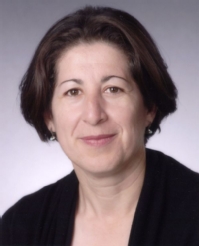
Congratulations to Dr. Fadila Boutouchent, a lecturer in the Faculty of Education’s Programme du baccalauréat en éducation, who successfully defended her dissertation titled Apprentissage et maintien du français langue seconde ou additionnelle: Une étude auprès des jeunes Canadiens anglophones.
Dr. Boutouchent completed her doctoral work at the Université de Moncton (NB) where she was supervised by Dr. Rodrigue Landry and Dr. Réal Allard, professeurs émérites en éducation. The external examiner, Dr. Richard Clément, Director of the Official Language and Bilingualism Institute / Institut des langues officielles et du bilinguisme OLBI / ILOB, University of Ottawa / Université d’Ottawa outlined the excellent contribution of Fadila’s research to knowledge regarding bilingualism. Félicitations!
“We are so delighted to be able to celebrate this success with her!” ~ Dean Jennifer Tupper
Congratulations on Successful Defence
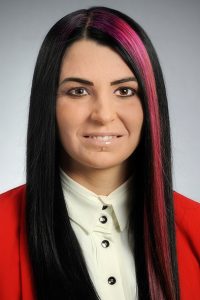
Congratulations to Dr. Angela Snowshoe, a lecturer in Educational Psychology with the Faculty of Education, who successfully defended her PhD on August 19, 2015. Angela completed her doctoral program at Western University where she was supervised by Dr. Riley Hinson.
Angela’s dissertation, The Cultural Connectedness Scale and its Relation to Positive Mental Health Among First Nations Youth was examined by Dr. Debra Pepler (York University) and passed with no revisions required! Dean Jennifer Tupper says, “This is a tremendous accomplishment that exemplifies the quality of Angela’s research and scholarship. Her dissertation will no doubt be widely read and cited.”
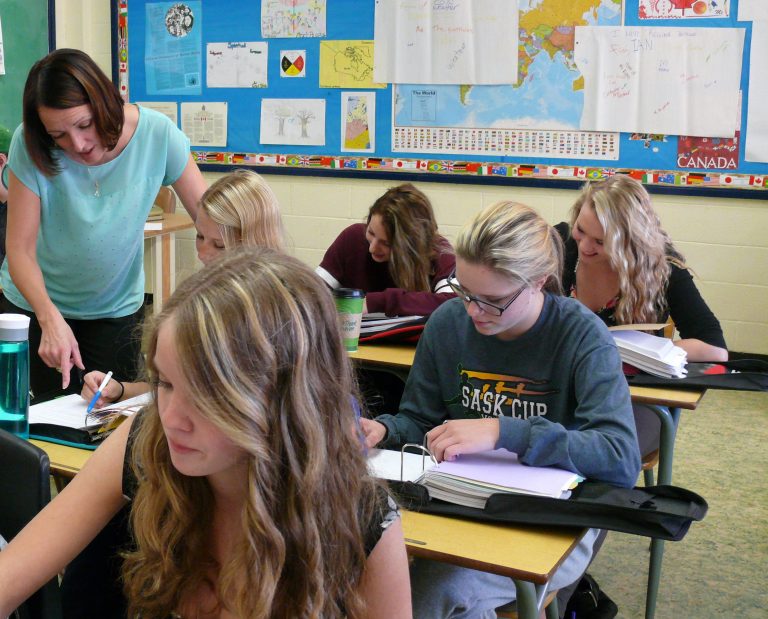
Dr. Tana Mitchell ~ Teacher-Researcher Profile
What was the intent of your research?
The intent of my research was threefold: First, I hoped to gain a deeper appreciation of the ways in which students who are categorized or racialized White in a senior high school social studies classroom perceive their racialized identity and its connections to privilege. Closely related to this exploration, I examined my assumptions and understandings as they have developed over time due to my racialization and other aspects of my subject positioning (such as socio-economic class, language, gender, sexuality, etc.). Third, I examined how I, as a racialized White teacher, contributed to the students’ perceptions, critical or otherwise. This inquiry was informed by Critical Race theory (CRT) and related approaches to critical race studies and was conceptualized as a qualitative ethnographic and auto-ethnographic study. The analysis of the student- and teacher-generated data involved critical discourse analysis.
What circumstances led you to research the topic of your dissertation?
I became interested in this research area for a number of reasons. First, I was increasingly uncomfortable with the seemingly uncritical acceptance of dominant discourses and nationalist narratives in my social studies classroom (a space wherein I hoped students would learn or continue to be critically engaged, life-long learners). For example, students often readily construct Canada to be a tolerant and accepting nation even though together we examine several historical and contemporary non-examples of these claims (like the devastating experiences of many First Nations peoples at government sanctioned residential schools, racist immigration policies, and inequitable economic, legal, social, and educational realities today). It has been my experience that even after these examinations, we seem to almost naturally perpetuate a pride in ourselves and in the nation as students often note how great Canada is and how lucky they feel to be Canadian. Even in the face of overwhelming evidence to the contrary, rather than rethinking their glowing recommendations of Canada as a peaceful, kind, and caring nation, students often either dismiss these negative events or issues or view them as minor blips in an otherwise spotless record, thereby essentially “whitewashing our racist history” (Lund, 2006, p. 206). While I can appreciate the desire to be proud of one’s nation, these nationalistic claims often precluded more critical examinations of our histories and contemporary society that required interrogations of the nation and its policies. Hence, rather than encouraging the development of critically engaged thinkers who acknowledge the complexities and inequities within society, it seems as though our shared experiences often enabled the perpetuation or (re)inscription of a nationalistic and inequitable status quo.
Second, with respect to educational policies and practices, it was becoming increasingly evident to me that the ways in which we were approaching teaching of and for diversity (often under the umbrella of multicultural, Aboriginal, and/or treaty education) and teaching for equity in mainstream educational spaces were not meeting with success (as defined by our stated goals such as equitable graduation rates or equitable access to programming). We were not (and still are not) ensuring equitable opportunities and outcomes for all students, nor were we reaching other social justice ideals like equality or the elimination of racial discrimination. While I was not able to articulate why we were falling short of these goals, I was beginning to appreciate that something significantly more than what we were doing was necessary. Hence this research inquiry grew from my desire to address the seemingly uncritical acceptance of the status quo in my classroom and to problematize my own pedagogical understandings and practices (as they reflect dominant approaches to teaching of and for diversity and equity in this province) so that I could develop a greater appreciation of the inherent structural racialized issues involved with these traditional understandings and approaches.
How has your research affected you professionally and personally?
My research has fundamentally affected many aspects of my life, both professionally and personally. Professionally, I have become more critically aware of the role I play as both a hegemonic and counter hegemonic agent within my classroom and the school at large. I am more aware of the structuring forces at work (many of which I am complicit in) that protect and (re)inscribe Whiteness in order to ensure its hegemony (and my privilege). Thus, my pedagogy is morphing into understandings and practices that are more critically and thoughtfully committed to the disruption of dominant racialized systems, towards more socially just ideals.
Perhaps even more fundamentally, this research has deeply influenced my personal identity as it has shattered the very way I see and understand myself and the place I occupy within society. The ways in which I understand myself (as a racialized White, middle class, English speaking, heterosexual, able-bodied, female teacher and mother in Saskatchewan) and the many privileges I enjoy at the expense of numerous others have changed significantly. While I have begun this process of developing a more critical consciousness, I imagine the enormity of these new-to-me realizations will likely have ongoing repercussions for many years to come.
What do you hope your research might accomplish in the field of education?
Beyond my own classroom and school space, I hope this research can inform the broader work of social studies education, development of educational policies and practices, and the professional growth of practicing and preservice teachers. Because social sciences courses often represent the primary places in which students engage with topics of power, privilege, the social construct of race, and processes of racialization, this research demonstrates the need to critically consider when and how these issues are included in the formal (and enacted) curricula, the impetus to thoughtfully and critically analyze pedagogical understandings and approaches for the ways in which they may (re)inscribe Whiteness and its corresponding privilege, and the call to authentically include and embed multiple and diverse knowledges, perspectives, and ways of knowing within the curricula and within classroom practice.
Even though this research speaks to particular issues within my classroom, and more generally within social studies education, it may also inform broader educational policies and practices like multicultural education. Traditional approaches to multicultural education have often served to (re)produce perceived nationalist traits like equality, tolerance, and fairness, rather than to engage students in critical analysis and reflection of their own identities and corresponding connections to privilege or their interdependence with others who are diversely produced. It is my hope that this research adds to the growing volume of work, illustrating the need to take a more critical approach to educating of and for diversity and social justice within Canada.
This research also has the potential to inform the professional development of practicing teachers and the preparation of preservice teachers in ways that encourage (even require) them to (re)consider their own subjectivities and to examine the ways in which schools and education systems as a whole ensure the ongoing production of Whiteness. As I discovered intimately through this inquiry, the dysconscious perpetuation of Whiteness through mainstream educational practices only serves to maintain the status quo complete with its systems of privilege and oppression. Thus, this research helps to illustrate the impetus to adequately prepare practicing and preservice teachers to engage critically and thoughtfully with issues of power, privilege, the social construct of race and processes of racialization (and their places within these relationships), and to give them the necessary time and support to engage authentically with multiple aspects of critical pedagogy and self-reflection. Only then may teachers be able to recognize and critique the systemic forces at play within classrooms, schools, and society as well as their own subject position within these spaces, and thus be more equipped to thoughtfully and effectively plan for learning experiences that may encourage students to do the same.
This study clearly demonstrates the multiple ways in which teachers and schools (through curricula, practices, and policies) continue to perpetuate the status quo through the ongoing acculturation of students into mainstream society. It is my hope that this research adds to our understanding of why it is critical to ensure schools (teachers, administrators, policy makers, and of course the students) to critically consider and disrupt dominant discourses, nationalist narratives, and the structuring forces of Whiteness in order to disrupt the perpetuation of systemic, racialized inequities. If we continue to approach diversity and diverse peoples in normalizing ways, inequity will continue to be inadequately addressed in schools. Rather our schools will continue to actively oppress, to actively marginalize, to actively colonize peoples who are racialized non-White and ensure the continuation of positions of privilege within this racialized society.
Was it difficult to achieve your research goals? How did you overcome obstacles, whether
personal or professional?
The greatest difficulty I faced in this research journey was striking the balance required to manage the arduous workload and to maintain personal relationships. Too often, I did not successfully negotiate a reasonable work-personal life balance and consequently, sacrifices were needed. Unfortunately these sacrifices often came at the expense of my time with others, including my family and friends. I was fortunate to have the generous and unwavering support of my husband and daughter as well as my extended family and friends. Their dedication to and support of me was the most critical aspect of my success. Some argue it takes a village to raise a child. I would argue it also takes one to complete a dissertation! I am so thankful for my generous and supportive village.
I was also incredibly fortunate to have a number of people make substantive contributions to this work and to my professional growth. The invaluable support, expertise, and compassion of my supervisor, Dr. Jennifer Tupper, and my committee members (Dr. K. Montgomery, Dr. P. Lewis, and Dr. M. Anderson) were critical to the successful completion of this research.
In addition to the support of my family, friends, and colleagues, I was fortunate to have the financial support of my primary employer, Regina Public Schools. I received release time from my full-time teaching responsibilities to complete aspects of this work. This financial commitment made me feel valued as a professional and enabled me to complete this work at less of a tremendous cost to my family.
The Heart of the Research
The following excerpt illustrates one of the major themes that emerged from the data.
Of particular interest for this study were the ways in which students were able to overtly and implicitly dismiss inconsistencies or discrepancies of these nationalist discourses (i.e. the tolerant and multicultural nature of Canada). A common thread seemed to be that others are ruining it for us and these others seemed to be older Canadians, people living in particular regions, provinces, or less metropolitan areas, and just generally intolerant people (who do not seem to be us). Some participants seemed to acknowledge that we have contributed to some of these inconsistencies but we generally do it without meaning to, we are better than we used to be, and we are better than many other places and people. Through the dismissal or displacement of these inconsistencies or disruptions to the nationalist discourses, the dominant national identity of Canada and Canadians remains relatively intact, reinforced by and through the prescribed and negotiated social studies curriculum. Rather than acknowledging these inconsistencies and thus problematizing the nationalist discourses, these discursive strategies serve as (re)structuring forces that (re)inscribe Whiteness. As Hytten and Warren (2003) identify, “the excessive use and reiteration of these rhetorics ultimately serve to maintain and protect whiteness’s discursively dominant cultural location” (p. 69).
Supervisor: Dr. Jennifer Tupper
Committee Members: Dr. Ken Montgomery,
Dr. Patrick Lewis, Dr. Mark Anderson
External Examinator: Dr. Darren Lund (U of C)
Defended: November 2013